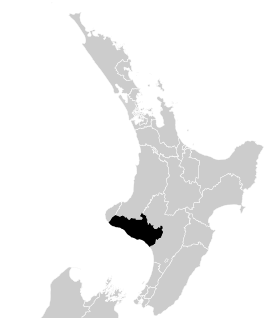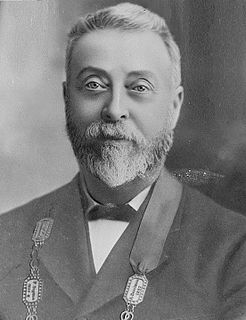Related Research Articles

The 1875–1876 New Zealand general election was held between 20 December 1875 and 29 January 1876 to elect a total of 88 MPs in 73 electorates to the 6th session of the New Zealand Parliament. The Māori vote was held on 4 and 15 January 1876. A total of 56,471 voters were registered.

The 1879 New Zealand general election was held between 28 August and 15 September 1879 to elect a total of 88 MPs to the 7th session of the New Zealand Parliament. The Māori vote was held on 8 September. A total of 82,271 (66.5%) European voters turned out to vote, plus 14,553 Māori voters. Following the election, John Hall formed a new government.

East Coast is a New Zealand parliamentary electorate, returning one Member of Parliament to the New Zealand House of Representatives. The electorate first existed from 1871 to 1893, and was recreated in 1999. The current MP for East Coast is Kiri Allan of the Labour Party, who has held office since 2020.

Whanganui is a New Zealand parliamentary electorate. It was first established in 1860 for the 3rd Parliament and has existed continuously since then.

William Hutchison was a New Zealand politician and journalist. Hutchison and his son George were both Members of Parliament.

Joseph Augustus Tole was a 19th-century New Zealand lawyer, politician, and Minister of Justice from 1884 to 1887.

Eden, a former New Zealand parliamentary electorate, lay in the general area of the suburb of Mount Eden in the city of Auckland.
Avon is a former New Zealand parliamentary electorate. It was created for the 1861 general election and existed until 1996. It was represented by 13 Members of Parliament and was held by Independents, Liberal Party or Labour Party representatives.
The former New Zealand parliamentary electorate on the western inner city of Auckland, was known as City of Auckland West from 1861 to 1890, and then Auckland West from 1905 to 1946.
Thames is a former New Zealand electorate, in the Thames-Coromandel District. It existed from 1871 to 1946.
Kaiapoi was a rural New Zealand electorate, north of Christchurch in the Canterbury region of New Zealand from 1861 to 1946. It was represented by twelve Members of Parliament.

William Lee Rees was an English-born New Zealand cricketer, politician and lawyer.

David Goldie was the Mayor of Auckland City from 1898 to 1901 and a Member of Parliament in New Zealand. The artist C. F. Goldie was his son.
Edward Withy was born in Bristol, England and in 1869 co-founded a shipbuilding partnership at Hartlepool that eventually became part of Furness Withy. He sold the firm in 1884 and emigrated from England to New Zealand, where he was elected to Member of Parliament in 1887, representing the Auckland electorate of Newton. He was the father of Arthur Withy, journalist and political activist. Like his son, he was a single-taxer and follower of Henry George.

William Thorne Buckland was a 19th-century Member of Parliament in New Zealand.
The third New Zealand Parliament was a term of the Parliament of New Zealand. Elections for this term were held between 12 December 1860 and 28 March 1861 in 43 electorates to elect 53 MPs. Two electorates were added to this during this term, Gold Fields District and a new Dunedin electorate created by splitting the existing City of Dunedin into Dunedin and Suburbs North and Dunedin and Suburbs South, increasing the number of MPs to 57. During the term of this Parliament, six Ministries were in power.
The 4th New Zealand Parliament was a term of the Parliament of New Zealand.
Sir Robert Andrews Mackenzie Douglas, 3rd Baronet was a Member of Parliament for Marsden in Northland, New Zealand.
The 10th New Zealand Parliament was a term of the Parliament of New Zealand. Elections for this term were held in 4 Māori electorates and 91 European electorates on 7 and 26 September 1887, respectively. A total of 95 MPs were elected. Parliament was prorogued in October 1890. During the term of this Parliament, two Ministries were in power.

The 14th New Zealand Parliament was a term of the New Zealand Parliament. It was elected at the 1899 general election in December of that year.
References
- Scholefield, Guy (1950) [1913]. New Zealand Parliamentary Record, 1840–1949 (3rd ed.). Wellington: Govt. Printer.